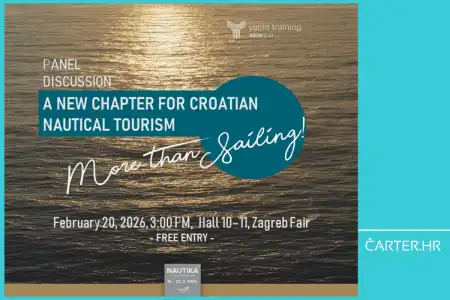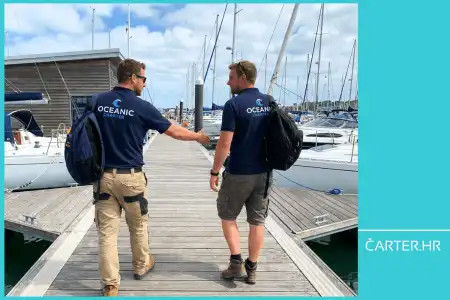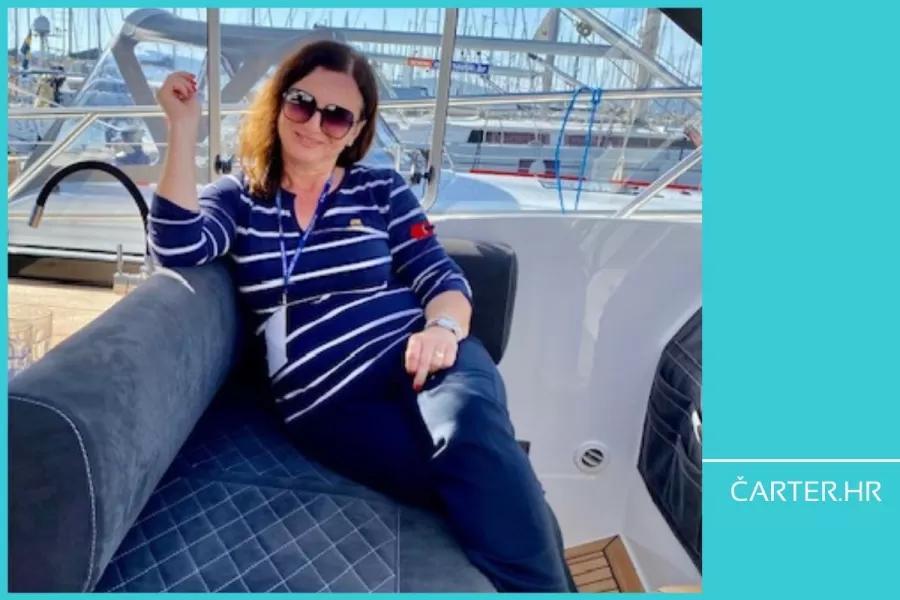
- 03.07.2023.
- News, Management
Achieving and maintaining a strong market position is crucial. A significant challenge is creating a "solid core" or a responsible creative team that "breathes" together. I like to emphasize the saying, "Those who work like the young remain long-lasting."
Director of the maritime & yachting training centre Adria Libar, Renata Knežić Rak, provides us with a unique insight into the background of the training centre's work and how they cope with the challenges of education and the pace of change demanded by the market.
She states that the maritime industry, as well as the nautical industry, offers great opportunities for both personal and professional development, particularly for young people.
Additionally, she openly discusses her private life, her own achievements, and the hobbies that help her relax.
Whenever we meet someone who is involved in maritime industry or yacht chartering, we often hear statements about how they fell in love with the sea and sailing, or how stepping foot on a boat or yacht was a transformative experience for them. Was it the same for you?
Actually, in my case, it's quite the opposite (laughter)... I have a significant problem with being on unstable surfaces like boats, pontoons, and the like, so I would say that my love for the sea, maritime industry, and boats is nurtured from the land.
How did you actually become the director of the maritime & yachting training centre? Did it require any special motivation or things simply happened by chance?
They say that nothing happens by chance in life. When I started working with Captain Gordan Baraka about 30 years ago, I didn't think it would be my long-term choice. But it turned out that way, and it turned out well. I will always be grateful to the late captain for "pushing me into the sea."
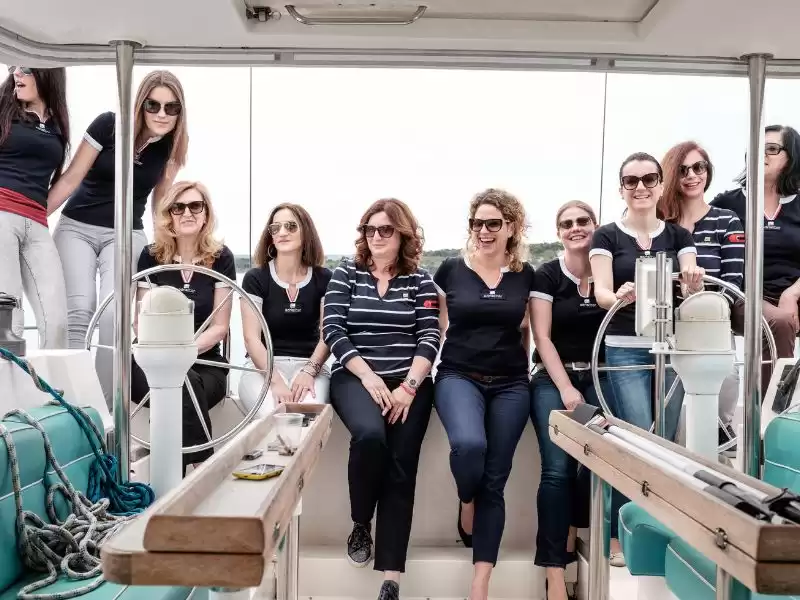
We know that there are strong and capable women in leading positions at Adria Libar, your colleagues. Do you think it is harder or easier for women to progress and succeed in the maritime and nautical industry?
A few years ago, our female colleagues and lecturers in Šibenik held an interesting lecture on the topic "Can the sea be of the female gender?" At that time, in 2015, it may have been a topic for discussion in general thinking. Today, I claim that we have surpassed that level.
My experience and the experience of my colleagues in their relationships with male colleagues have always been based on respect and appreciation. We have never felt any gender discrimination. In the maritime industry, what matters is how competent and skilled you are, not whether you are a woman or a man.
How do you deal with the challenges that come with the position of the director of a maritime training centre? Do you have any hobbies or ways to unwind after a tough day? They say that leadership positions require sacrifice and dedication. Do you feel like you have missed out on any part of your life?
Alongside starting a family, working at the training centre has given meaning to my life and invaluable life experience. I have never regretted my career choice. Throughout the years in a managerial position, there have been difficult situations and wrong decisions, but I have grown from them. I can say that it has all resulted in an excellent team of people I am surrounded by today, and I believe we are on the right path. The role of a director involves a lot of travel, constant learning, market research, and adopting new trends to stay competitive in the international market.
After a (tiring) workday, I change into sportswear and exercise in a group at the gym. A good team during training motivates me when energy runs low and the couch seems tempting. That's when I overcome myself (laughter). I enjoy having dinners and going to concerts with friends.
Šibenik, the city where I live and work, is rich in cultural events, and I try to follow as much as I can.
The pace of work for many can lead to alienation from family. For me, it's a pleasure to set aside time and support my two children in their sports and creative activities. They are proof that I haven't failed on the family front and that work hasn't "taken me away." My husband has played an important role in maintaining balance and understanding throughout my career; I have to mention him (laughter).
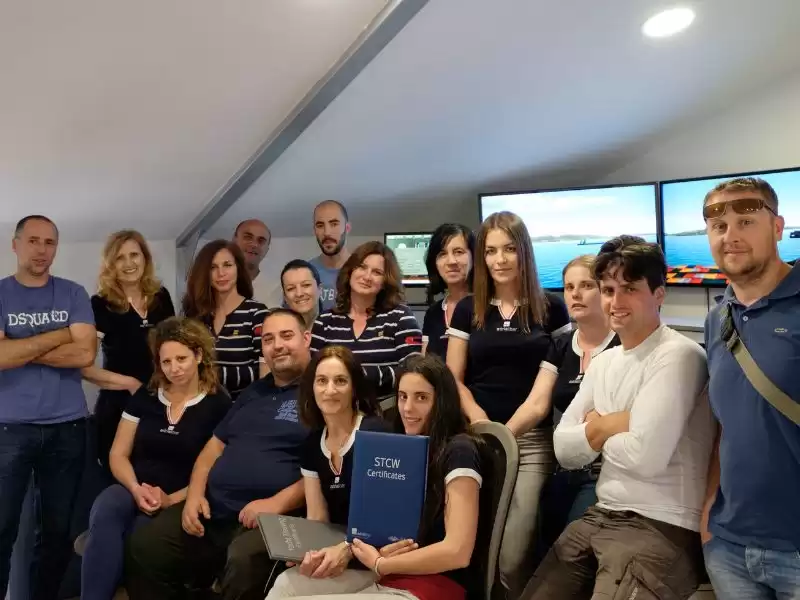
It is certainly a challenging job - what obstacles do you encounter and how do you overcome them?
Achieving and maintaining a strong market position is important. A significant challenge is to create a "solid core" or a responsible creative team that "breathes" together. I like to highlight the saying, "Those who work like the young remain long-lasting."
Our job requires order and discipline, respect for rules, and functioning as a team composed of multiple generations. It is satisfying to bring together experienced colleagues and young colleagues and witness how they bring out the best in each other, resulting in original ideas and business success.
Responsibilities and challenges were particularly pronounced during the COVID-19 pandemic, during the crisis. We had to gather our emotions and act overnight, seek solutions, and sustain the company. The decisions were not easy because it involved a business family and life situations. This situation affected our satisfaction, work, and life.
Despite the work interruptions and limitations, we endured. I am grateful to everyone for their understanding, especially during the most challenging situations.
Adria Libar trains seafarers and also provides education for basic professions in yacht chartering. What are some of the most important skills that can be mastered at the training centre? How do you help your students develop these skills?
It is a great advantage to have a team of lecturers and instructors who are up to date in the industry, who love their work, and are able to share their knowledge. Taking inspiration from international practices, we have implemented more practical training in real-life environments or simulations.
We constantly work on raising awareness about the protection of seafarers, the sea, the vessel, and the crew. Students recognize this and choose us based on recommendations, which is the greatest compliment in our business.
The training centre has developed over its 30 years of existence and continuously works on its reputation, being known as a leader in the field. What is the biggest obstacle when it comes to education?
Gradually, we have grown and each year has brought us a new leap forward. More important than being a leader is that throughout the years and challenges, we have remained true to ourselves. Business ethics, the trust of individuals, companies, and institutions we collaborate with, who respect us in business, is what defines our success.
In the maritime industry, everything is strictly regulated and transparent, and rules must be followed, otherwise, you are not part of the international maritime community. Unfortunately, educational programs in the nautical field do not change at the pace dictated by the market.
Administrative processes are often slow, and in this industry, when you have the backing of state administration, it carries weight and value in the job market. Great efforts are made to be competitive in the nautical field. As a country and as individuals, we can achieve this and we deserve it.
The training centre has actively initiated efforts to motivate and educate young people in the nautical field, regularly organizing lectures and panels at colleges and universities. Is it difficult to familiarize young people with the nautical industry? How well do they understand the essential need for professionals in the nautical field?
We launched this initiative with partners who share our mindset and goals. It is evident that there is a shortage of qualified workforce in the nautical industry, and everyone talks about it just before the season starts. However, action needs to be taken consistently. Our discussions, I wouldn't call them lectures, are open to anyone interested in the topic, those who want to ask questions, learn about how the business operates and develops, and explore potential work opportunities.
We strive to be approachable and informal. Not long ago, when we were students, we would have greatly benefited from a few more insights from the real sector of work. Resourceful individuals recognize opportunities, but we have a responsibility to assist everyone.
The maritime and nautical industry offers significant personal and professional development opportunities for young people, as well as those considering career changes. When you present stories from the "entrepreneur's perspective," explain the job, expectations, trends, and the structure of a typical day in the industry, you provide concrete information. If seafarers or skippers and hostesses describe their work experiences, education, and career progression, we can overcome many barriers that often discourage people from entering the field.
It is worth dedicating time, and the feedback has been very positive. People are open to conversations and exchanging thoughts, often pushing us to take faster steps in our business. We proudly emphasize that through such opportunities, we create a shared positive image of the potential, professionalism, and beauty of the Croatian maritime and nautical industry.
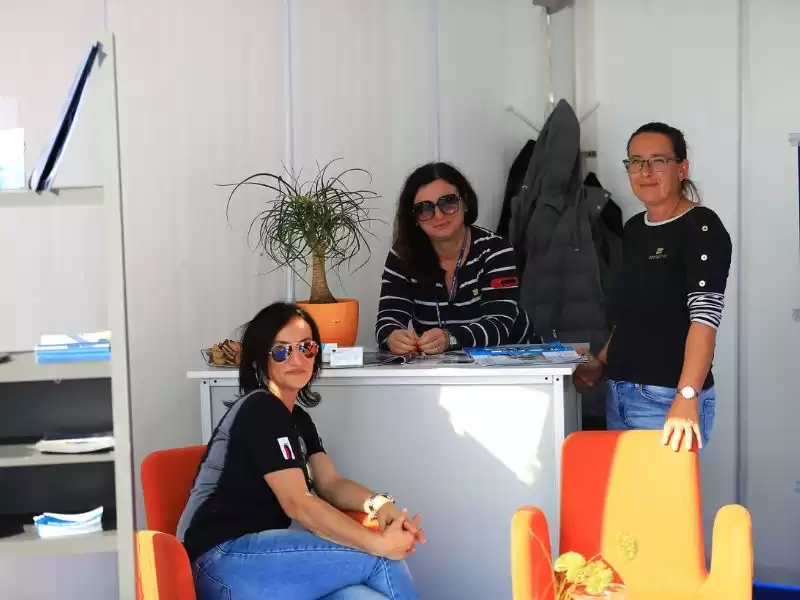
Leading an training centre that holds lectures in 5 different cities is a significant endeavor. What are the advantages and disadvantages of such a working model, and how do you organize the functionality of the of it all?
Once again, I will emphasize that having a good team is a prerequisite for good work. Of course, as the director, I cannot be present in all locations, but the colleagues who manage the branches are determined and proactive in their work, and they have the support and trust of the management. I say colleagues because women have established themselves in such positions. The advantage of operating in multiple locations is having a networked and coordinated system of work. Regardless of the distance, information is consolidated.
How do you deal with innovations in the industry and adapt to new trends and technologies?
Today, information about technological advancements and innovations in the maritime industry is more accessible than ever before. There are specialized trade shows, conferences, and dedicated solutions that you must follow; otherwise, you risk being left behind. Everything is changing rapidly, and the faster the development, the greater the risks and uncertainties.
Anyone who visits our training centre notices the advanced simulation systems we use for specific training requirements and preparing participants for ships or yachts.
What advice would you give to people considering a career in the maritime industry, particularly in education?
Be positive and open to learning, listening, and simultaneously building yourself. Take advantage of government incentives for education and business, find your path. However, remember that technical knowledge is only half of what is needed for success. The other half is the skill of building relationships and connections. Therefore, choose your collaborators carefully. Despite the advancement of technology and various tools, don't forget that it is the human element that shapes identity and social responsibility.
Hybrid, recycled, and sustainable are words that are increasingly used in relation to navigation and yacht chartering as the "new normal." How does Adria Libar view sustainability in education? Do you train your participants on this burning issue, and do you have specific education programs dedicated to it?
Preserving and sustainably utilizing the sea and its resources is a topic that runs through almost every course at our training centre. The D48 Marine Environmental Pollution Prevention course is prescribed by the International STCW Convention to educate seafarers on regulations and policies for preventing pollution of the sea by oil, wastewater, and garbage.
Through this course, we cover international environmental protection rules and current regulations in different ports, laws regarding ship waste, and educate participants on how to understand and properly handle ship waste. We also cover procedures in case of pollution, equipment, and documentation associated with such procedures.
Furthermore, in the maintenance of vessels by the ship's crew, we promote a GO GREEN approach, avoiding or reducing the use of plastics and chemicals, and using ECO FRIENDLY cleaning products. Candidates are often surprised when instructors explain the cost savings that can be achieved by replacing chemical substances with environmentally friendly alternatives such as baking soda, lemon, vinegar, sea salt, and more. With small steps, we can contribute to the environment.
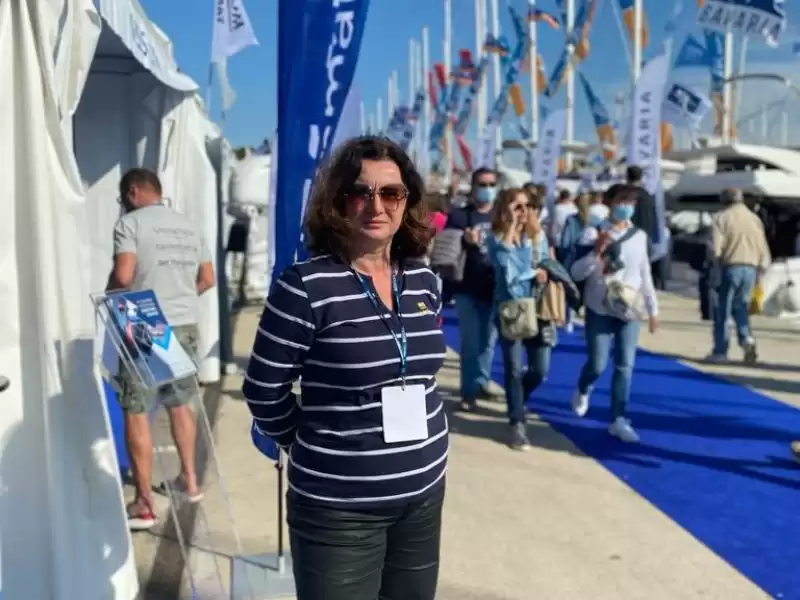
As the director of the maritime & yachting training centre, you and the centre itself are surely always prepared for what tomorrow brings. Do you have any specific plans for the future, for the further development, as well as your personal and professional growth?
After everything we have been through, I would say that my foremost wish for those around me is good health and optimism. Our mission is to bring education closer to a wide range of people and participate in positive changes in the maritime and nautical industry, as well as in the economy and society in general. We build our "house" through creativity and continuous improvement.
I look forward to new collaborations that we are just starting and development projects within the training centre. You will read about them on Čarter.hr (laughter).
I would like to thank Čarter.hr as a media outlet for recognizing our work. We gladly use your platform to inform the public, and through your quality content, we learn a lot as well. You see, each of us has a share of responsibility and influence in shaping the perception of Croatian maritime and nautical industry.
Categories of trends
- News
- Sale
- Marketing
- SEO
- Web design
- Social media
- Technology
- Regulations
- Management
- Education
- Finances
- User experience
Newsletter
Sign up for the newsletter and receive the latest trends and tips straight to your inbox
